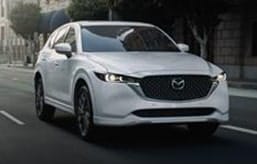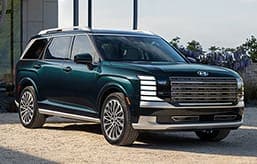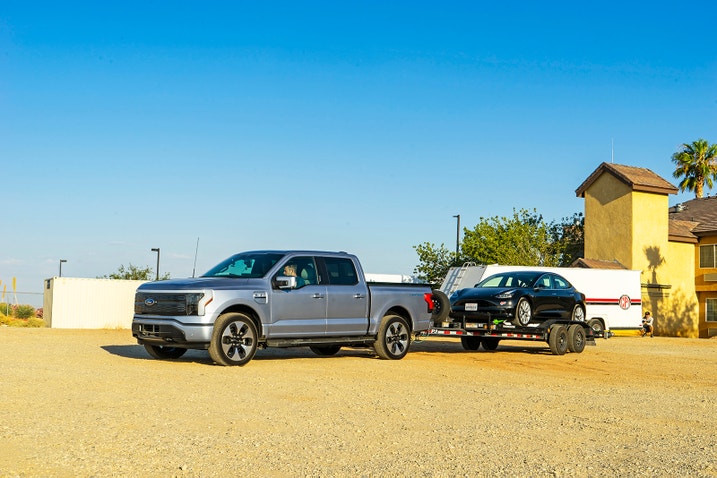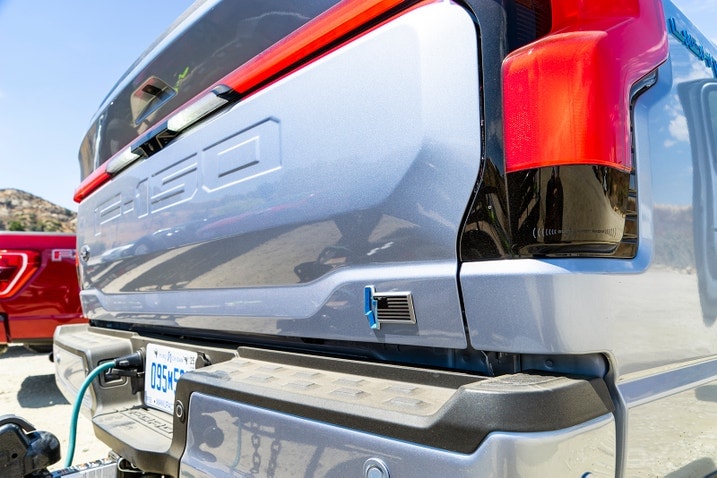- Towing is a major question mark for fully electric pickups.
- We tested the Ford F-150 Lightning EV against three tough fossil-fueled trucks.
- The Lightning exceeded our expectations but also highlighted the current limitations of EV towing.
Tow Test! Ford F-150 Lightning EV vs. Old-School Trucks
Can an EV hold its own against beefy trucks built to tow?
When it comes to towing heavy loads with an electric vehicle, there are multiple causes for concern. For one thing, efficiency is thought to plummet — some tests have found that the fully electric Ford F-150 Lightning loses half or more of its driving range when towing. Plus, the reliability of public charging stations remains a wildcard, especially for non-Tesla vehicles.
Am I Ready for an EV?
- EV ownership works best if you can charge at home (240V outlet)
- Adding a home charging system is estimated to cost $1,616 in
- Edmunds is partnering with Treehouse, an independent provider of home EV installation services. Learn more about the installation services partnership
But none of that stopped us from pitting the Lightning against three traditional internal-combustion trucks in a good old-fashioned tow test. So, what's the best truck for towing? Is the Lightning more ready for prime time than we thought? Let's take a closer look.
The trucks
We used four 2022 model-year pickups to conduct our test. In addition to the F-150 Lightning Platinum EV, we also drove:
- a Chevrolet Silverado 1500 ZR2 with its gasoline-powered V8
- a Ram 1500 Limited with the turbodiesel V6
- a hybrid-powered Ford F-150 XLT PowerBoost from our own long-term fleet.
Four trucks, four different energy sources. All came equipped with 4x4 systems and were outfitted with a Class IV tow hitch, but towing came more naturally for some. For instance, while the Chevy Silverado is known for hard work, the ZR2 model we tested featured a lifted off-road suspension and knobby mud-terrain tires that ate into its efficiency. As for the Lightning EV, it featured an optional extended-range battery, which sounds like a plus but also adds significant weight and lowers the truck's max towing capacity from 10,000 to 8,500 pounds. Conversely, the F-150 PowerBoost appeared well suited to the challenge with additional muscle from its hybrid system. The turbodiesel Ram, meanwhile, came stacked with oversized towing mirrors, additional cooling and an upgraded rear axle ratio.
Route and planning
The trucks faced a challenging loop of 215 miles, battling steep grades and sweltering ambient temperatures through the California desert. The route was chosen because it's indicative of the challenges that typical truck drivers face on a regular basis. It's a common thruway for farmers hauling hay bales to one of the area's many cattle ranches, or families taking the boat out for a weekend of fun. If electric trucks are to make inroads with traditional pickup owners, they'll need to handle routes like this one without issue.
The route also appealed because it provided good access to public charging stations. Given the uncertainty surrounding our Lightning EV's range while towing, we needed strong charging options along the way in case the batteries got low. The plan was to charge in Bakersfield around the 87-mile mark and then again in Mojave near 150 miles. Both stops offered Level 3 DC fast-charging stations for a theoretically quick fill.
What did they tow?
We hooked all four trucks to identical payloads: a 3,120-pound open-air trailer carrying a Tesla Model 3 ballasted to 3,855 pounds. That left each truck with 6,975 pounds off its rear hitch in total — a hefty load for the Lightning and Silverado, rated at 8,500 and 8,900 pounds of maximum towing capacity, respectively. It was less challenging for the Ram and F-150 PowerBoost, each rated north of 12,000 pounds. All drivers were instructed to observe the California trailering speed limit of 55 mph on the highway.
There was another hurdle for the Lightning to overcome. The curb weights of our three ICE trucks were within 100 pounds of one another, averaging about 5,800 pounds without passengers. The Lightning, however, weighed an additional half-ton, tipping our scales at 6,871 pounds. That put it at a distinct disadvantage against the other trucks, bringing its total gross combined weight (GCW, or the weight of the truck and the trailer put together) to a massive 13,846 pounds that its EV motors would need to haul around for hours on end.
The numbers, please
Before we get into the question of the best truck for towing, let's look at the key data from our test. You can already see that the Lightning breaks the mold &mdash it has the highest GCW, the lowest energy cost, the shortest range and the highest price. Speaking of price, if you want to buy a truck like the one we tested, they're all sold out for 2022, so you'll have to get a 2023 and fork over an extra $6,100 for a total of $99,609. Oh yeah, and our single charging stop during the test consumed a mind-numbing hour and 42 minutes (more on that below). The old-school trucks didn't have to stop at all. There's a lot going on here.
Tow Test Specs & Results
Truck | Price as tested (including destination) | Max towing capacity | Gross combined weight (GCW) | EPA-estimated efficiency (unladen) | Measured efficiency | Efficiency shortfall compared to EPA | Energy cost for 215-mile test (CA prices) | Time spent refueling along the route | EPA-estimated driving range (unladen) |
|---|---|---|---|---|---|---|---|---|---|
| 2022 Chevrolet Silverado 1500 ZR2 | $72,770 | 8,900 lbs | 12,717 lbs | 15 mpg combined | 13.6 mpg | 9.3% | $93.76 | none | 360 miles |
| 2022 Ford F-150 Lightning Platinum Extended Range | $93,509 | 8,500 lbs | 13,846 lbs | 51 kWh/100 mi | 64.6 kWh/100 mi | 26.7% | $59.62 | 1 hr 42 mins | 300 miles |
| 2022 Ford F-150 XLT PowerBoost 4x4 | $62,285 | 12,400 lbs | 12,741 lbs | 24 mpg combined | 15.1 mpg | 37.1% | $80.28 | none | 734 miles |
| 2022 Ram 1500 Limited Turbodiesel 4x4 | $75,620 | 12,560 lbs | 12,798 lbs | 24 mpg combined | 17.6 mpg | 26.7% | $69.05 | none | 624 miles |
So what's the best truck for towing?
Spoiler alert: It's not the electric one. We'll start with the Silverado ZR2, which gets an honorable mention for breezing through our test despite being primarily designed for off-road use and sporting a max towing capacity some 30% lower than the Ram and Ford PowerBoost. It remained confident and composed on the road, its big 6.2-liter V8 engine leading the way. That engine is the truck's gift and its curse, as it required the most fuel of the group — but to the V8's credit, the Chevy came the closest to hitting its EPA efficiency estimate while towing, missing by just 9%. The Silverado doesn't make it to the winner's circle this time, but with a different configuration it could have contended.
The Ford F-150 XLT PowerBoost was the cheapest truck in our test, but it didn't perform like it. Notably, the hybrid F-150 relies entirely on its turbocharged 3.5-liter V6 gasoline engine for propulsion while in Tow/Haul mode — the normal hybrid functionality is not available. That helps explain why it had by far the biggest efficiency shortfall in this test relative to the EPA projection. Still, it managed to be more fuel-efficient than the Silverado, and once you take the trailer off, that hybrid boost returns to deliver exceptional fuel economy along with serious acceleration. If you want the all-around champ for both towing and routine driving, the F-150 PowerBoost gets the nod.
But it was the Ram 1500 that seemed tailor-made for this test, and it didn't disappoint. Its four-corner air suspension muted nearly all bumps and cracks along the road. The torque-rich turbodiesel engine needed minimal effort to pull the trailer up inclines, especially paired with the shorter 3.92 rear axle ratio, though the aggressive gearing didn't do the fuel economy any favors. The Ram averaged 17.6 mpg, down from its unladen EPA estimate of 24 mpg for an efficiency shortfall of 26.7%, which tied the Lightning EV in the middle of the pack. On the other hand, 17.6 mpg is easily the best figure among the three fossil-fueled trucks. Yes, we were hoping to cross the 20 mpg threshold on this journey, but the super-luxe, super-brawny Ram stood out anyway as the very best truck for towing in this test.
Where does that leave the Lightning?
The word "electric" may not pull much weight in towing circles just yet, but the Ford F-150 Lightning showed no signs of cracking under the pressure of our test. Despite having the lowest maximum towing capacity and the highest gross combined weight, the Lightning handled its load with poise over the duration of the trip. Its expanded battery pack and two electric motors had no issues going up and over inclines, and its independent rear suspension — as opposed to the traditional solid axle found in most trucks — smoothed out the ride quality without hampering capability.
Of particular note was the Lightning's modest 26.7% efficiency shortfall relative to the EPA estimate, a respectable midpack result in this test and a much smaller deficit than we expected based on what we'd heard. How did this happen? For one thing, we stuck to the legal towing speed limit of 55 mph rather than straying toward the regular speed limit or even higher, which certainly helped the cause. Also, our trailer was relatively aerodynamic. But it's not like we were playing games; this was a perfectly normal (and legal!) towing scenario. As such, we're impressed that the electrified Ford hung in there and lost barely a quarter of its projected efficiency, tying the Ram for second place in that category and crushing its Ford stablemate.
Ah, if only we didn't have to stop to charge it, right? But that's the thing with EVs — you've probably heard they need to be plugged in every now and then, and that's where the Lightning fell down. It did get off to an impressive start, returning more energy through regenerative braking than expected. This inspired Edmunds editor-in-chief Alistair Weaver to power past our first planned stop in Bakersfield and switch to a one-stop strategy. All he needed to do was find a working fast charger in the desert town of Mojave, where the Lightning was showing 40 miles to empty with 65 miles left on the route. Unfortunately, this process took about an hour longer than expected and required unhooking and rehooking the trailer for each charging attempt. It was annoying. But was it the Lightning's fault?
Not exactly. This is fundamentally a problem of infrastructure. Even in EV-friendly Southern California, juice can be hard to come by. When the Lightning did connect to a suitable station, the battery charged as advertised and the truck finished the job. But if there's one takeaway about the Lightning EV's towing chops in late 2022, it's that any charging stop along your towing route could very well be both frustrating and time-consuming. For now, at least, anyone who does serious towing on a regular basis will be better off sticking with the old-school tried and true.
Edmunds says
The F-150 Lightning is a laudable effort from Ford that can certainly hold its own in a real-world towing test against purpose-built beasts of burden. But when will our EV infrastructure step up and reliably deliver a satisfying charging experience? As of this writing, that's the trillion-dollar question.








 by
by